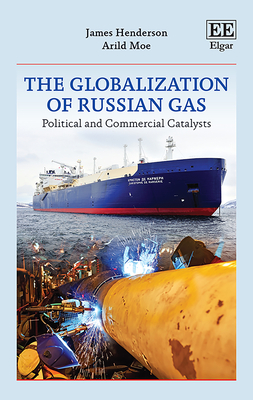
The Globalization of Russian Gas:Political and Commercial Catalysts
Interview with James Henderson,Arild Moe
May 14, 2020Sign Up to listen to full interview.
About James Henderson,Arild Moe
moreInterview Summary
For the last five decades natural gas export has added significant foreign currency to treasuries of the ex-USSR and now Russia. By tapping the vast natural gas fields, Gazprom provides natural gas to more than 70% of homes and industries in Russia. Through the steady development of its distribution network, Gazprom has also become a leading supplier of natural gas to European Union member nations.
In The Globalization of Russian Gas: Political and Commercial Catalysts, professors James Henderson and Arild Moe offer a comprehensive review of the Russian natural gas industry and a detailed analysis of forces at play in Russia, Europe and Asia. Both in scale and scope, Russia’s energy complex is vast.
The global energy economy is in a state of flux and Russia, despite several technical hurdles, has managed to reach new peaks in natural gas production in 2018. Moreover, Russian gas now accounts for 36% of natural gas consumption in the EU and now with the Power of Siberia pipeline Russia has emerged as a leading gas supplier to China.
In spite of commercial and political challenges, Russia has not only increased its production but has also become a reliable supplier in the world market. How Russia balances its needs of domestic energy, the thirst of foreign exchange and diversification from its traditional markets in Europe to Asia with the help of pipe networks and LNG supply will impact global energy markets in the decade to come.
Key Topics
- What role have oil and natural gas played in the former Soviet Union and in today’s Russia?
- What are the mechanisms of price discovery in Russia's gas market?
- How has Russia's domestic natural gas market evolved and led to the rise of independent gas explorers and distributors?
- What are the natural export markets for Russian gas?
- How has Gazprom become the leading natural provider to the European Union?
- How did policy changes at the European Union manage to bring Russia and China closer?
- Which four trends are driving the steady increase in the use of natural gas in the EU?
- Will domestic market competition only lead to redistribution of income and not an increase in revenues for state?
- Why does Russia have an advantage in beating global LNG suppliers in meeting rising demand for natural gas in the European Union?
- How does Russia balance its domestic natural gas demand, export revenues, and diversify customer base?
